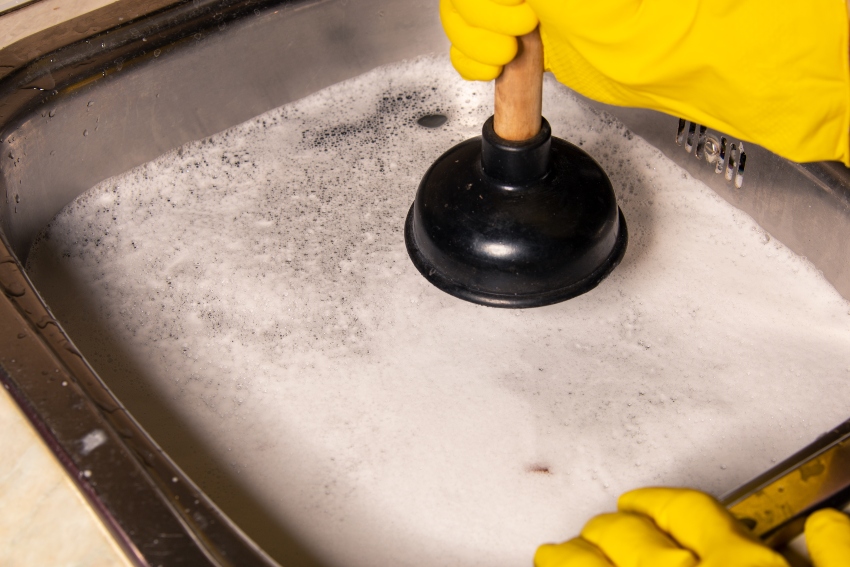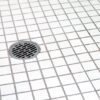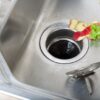Category: Lines

Winter Plumbing Maintenance Reminders
Winter is extra tough on our home’s plumbing system, and we’re currently in the middle of the season’s coldest months. Follow these winter plumbing maintenance reminders to help avoid major issues and costly repairs.
Protect Your Pipes from Freezing
Frozen pipes are probably the most common winter plumbing problem, especially here in Minnesota. When the temps drop way down and harsh winds blow, the plumbing in exterior walls is at an even higher risk. Follow these guidelines to help prevent frozen pipes:
- Keep the furnace running. If you want to lower the thermostat at night or when you’re away, it’s recommended to go no lower than 55 degrees (closer to 60 if extreme cold and high winds are expected).
- Open kitchen and bathroom cabinet and closet doors. This allows warm air to reach and circulate around the plumbing.
- Leave faucets dripping/trickling overnight. On extremely cold nights, allowing the water to run, even minimally, helps prevent them from freezing.
Be sure you know where your home’s main water valve is located for quick, easy access should a pipe freeze or burst. In that case, close the valve and call your local plumber.
Keep Your Drain Lines Clear
Food particles, soap scum, hair, and other debris naturally collect in pipes over time and cause clogs. They’re more susceptible in winter, however, as the cold, harsh weather can stiffen and solidify these blockages more rapidly. Professional drain cleaning service is recommended every two years, and you can help keep your drains clear with these tips:
- Use strainers to catch common blockages. Debris can’t collect and clog your drain if it doesn’t get in to begin with! Cover sink and tub drains (especially in the bathroom and kitchen where they’re used most often) with strainers to collect large particles and then toss them in the trash.
- Never dump fats, oils, or grease down the drain. These are common clog culprits because they cool as they move through the pipes, coating the interior walls, solidifying, and building over time. These items should be disposed of in the trash – if they’re hot from cooking, collect them in an empty jar or coffee can to cool first.
- Don’t dump coffee grounds down the drain or garbage disposal. Since coffee grounds don’t break down in water, they don’t grind up and wash away like other food particles. Instead, they clump together and form a clog over time. Throw old coffee grounds in the trash rather than down the drain.
- Pour hot or boiling water down drains, especially in the kitchen. Not only will this heat up the cold pipes and help loosen any gunk buildup, hot water also makes the natural oils of food products move faster and more easily through the drain. However, use cold water while running the disposal to prevent those oils from liquefying and adhering to the blades.
- Use baking soda and vinegar for a homemade drain cleaner. Store-bought drain cleaners may help clear clogs, but they can also eat away at the pipes themselves. Instead, pour 1/2 cup of baking soda down the drain, followed by 1/2 cup of vinegar, and then let it sit for at least 30 minutes before rinsing with a pot of boiling water. Vinegar’s acetic content makes it an organic solvent that will naturally break down buildups in the pipes, and the baking soda absorbs odors to help keep the sink smelling fresh.
Remember that garbage disposals are designed for grinding and draining scraps of food, so large pieces should be scraped into the trash. Try to get dishes as clean as possible before washing to limit the amount of debris getting into your drain. If you experience clogs, backups, or other drainage issues, contact your local drain cleaning pros at Robillard.
We’ve made it through the holidays and into 2021, but there are still plenty of cold days ahead of us here in Minnesota. Use these winter plumbing maintenance reminders to help prevent inconvenient issues and expensive repairs or replacements.
For all your plumbing service and product needs, trust the experienced master plumbers at Robillard. Contact us today to learn more.
Read More


